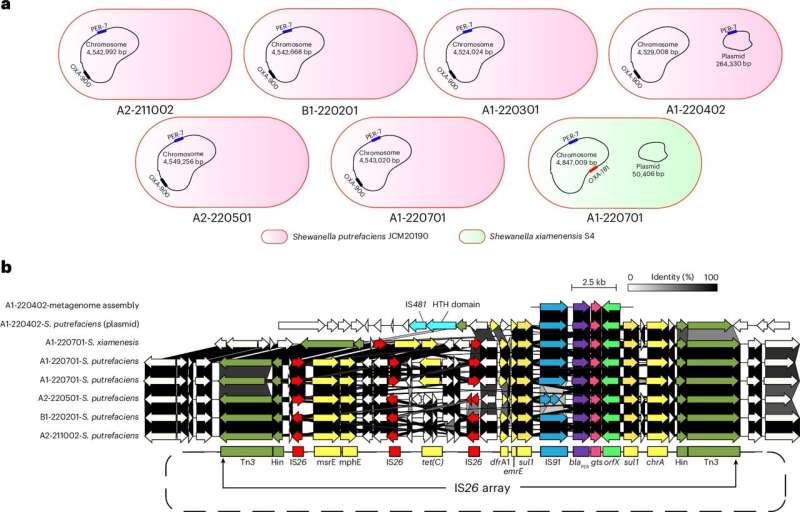Mass gatherings, such as major sports events and festivals, bring together people from different regions and countries. One associated risk of such large gatherings is the potential spread of antimicrobial resistance (AMR), a growing threat that undermines the effectiveness of treatments for infectious diseases.
However, it is a threat hard to assess due to the lack of a suitable baseline. The COVID-19 pandemic border closures provided an opportunity to establish a baseline level for antimicrobial resistance genes (ARGs) and show the impact of mass gatherings once travel resumed.
A study, led by Changzhi Wang, a Ph.D. student in Pei-Ying Hong’s group at KAUST, indicates that mass gatherings contribute to the spread of specific ARGs into local wastewater systems. The work is published in the journal Nature Water.
The presence of ARGs in wastewater is a potential cause of concern in Saudi Arabia. In its many rural areas, wastewater is collected in septic tanks that may be leaking into the surrounding environment, rather than being treated in centralized facilities.
The researchers sampled wastewater from four wastewater treatment plants that usually received untreated sewage from mass gatherings, as well as the local community. They also obtained sewage samples from a control plant that does not receive any wastewater from mass gatherings. Sampling was carried out between July 2020 and August 2022, after borders were reopened.
Using metagenomic analysis, the researchers investigated the relative abundance of ARGs, focusing on those conferring resistance to beta-lactam antibiotics, specifically metallo-beta-lactamase (MBL) and extended-spectrum beta-lactamase (ESBL).
“We observed MBL/ESBL families in specific periods that were associated with mass gatherings,” says Wang.
“This is represented by a corresponding increase in the number of meropenem and ceftazidime-resistant colonies recovered from the sewage in the four treatment plants after the mass gatherings in 2022,” he explains.

In contrast, at the control plant, the researchers could not isolate any of these meropenem or ceftazidime-resistant colonies.
“We also detected a beta-lactamase gene (blaPER) in pathogenic bacteria during the peak period of mass gatherings, which reinforces the evidence that these gatherings could introduce new antimicrobial resistance genes to the local community,” Wang concludes.
Their findings have implications for monitoring AMR. They suggest that relying solely on the relative abundance of total ARGs may overlook key human-driven changes in resistance patterns.
The researchers conclude that adopting metagenomics as a surveillance approach, combined with bioinformatic analysis of specific ARGs, may more effectively reveal how mass gatherings contribute to the spread of AMR.
Hong believes the insights are crucial for informing public health strategies to ensure better preparedness and response to the spread of AMR during mass events.
“Based on our findings, wastewater/water surveillance could be an appropriate tool to monitor for a broad spectrum of microbial targets,” she says. “The findings highlight the risk posed by untreated wastewater and suboptimal wastewater treatment infrastructure.”
Hong explains that the study also highlighted the need for integration of omics-based approaches with cultivation-based monitoring methods to more effectively assess and mitigate AMR risks.
“These insights are crucial for informing public health strategies and interventions, ensuring better preparedness and response to the spread of antimicrobial resistance during mass gatherings,” she concludes.
More information:
Changzhi Wang et al, Wastewater surveillance unveils the impact of mass gatherings on antimicrobial resistance after the COVID-19 pandemic in Saudi Arabia, Nature Water (2025). DOI: 10.1038/s44221-025-00446-3
King Abdullah University of Science and Technology
Citation:
Wastewater surveillance tracks spread of antibiotic resistance from mass gatherings (2025, September 2)
retrieved 2 September 2025
from https://medicalxpress.com/news/2025-09-wastewater-surveillance-tracks-antibiotic-resistance.html
This document is subject to copyright. Apart from any fair dealing for the purpose of private study or research, no
part may be reproduced without the written permission. The content is provided for information purposes only.

